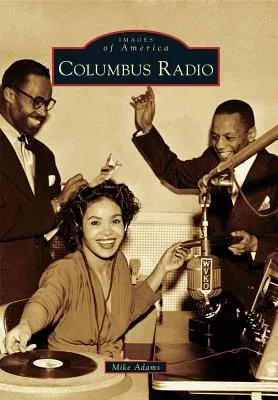Mike Adams
(Author)Columbus RadioPaperback, 5 December 2016

Qty
1
Turbo
Ships in 2 - 3 days
In Stock
Free Delivery
Cash on Delivery
15 Days
Free Returns
Secure Checkout

Part of Series
Images of America
Print Length
128 pages
Language
English
Publisher
Arcadia Publishing (SC)
Date Published
5 Dec 2016
ISBN-10
1467124400
ISBN-13
9781467124409
Description
Product Details
Author:
Book Format:
Paperback
Country of Origin:
US
Date Published:
5 December 2016
Dimensions:
23.11 x
16.26 x
1.27 cm
Genre:
Midwest
ISBN-10:
1467124400
ISBN-13:
9781467124409
Language:
English
Pages:
128
Publisher:
Series:
Weight:
317.51 gm